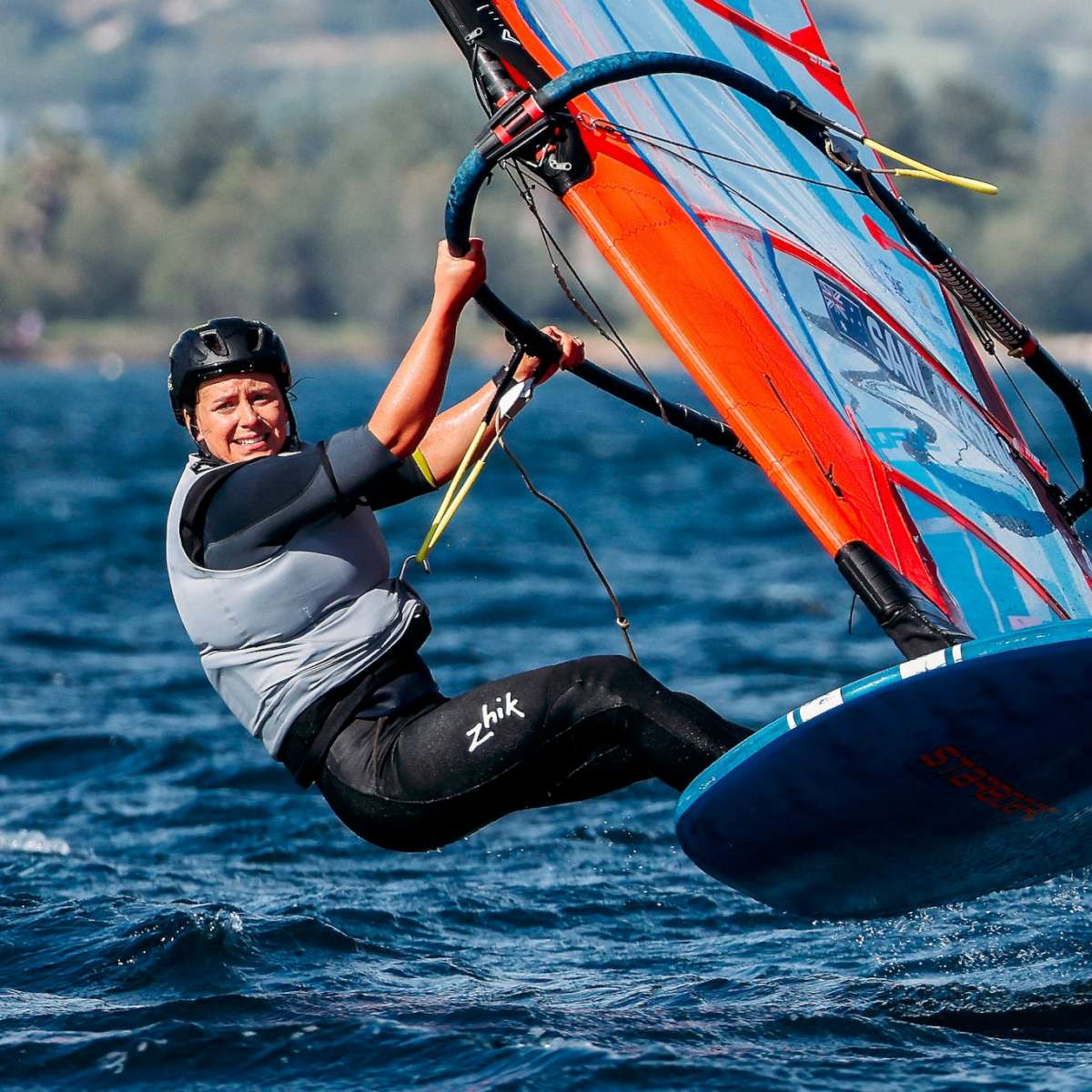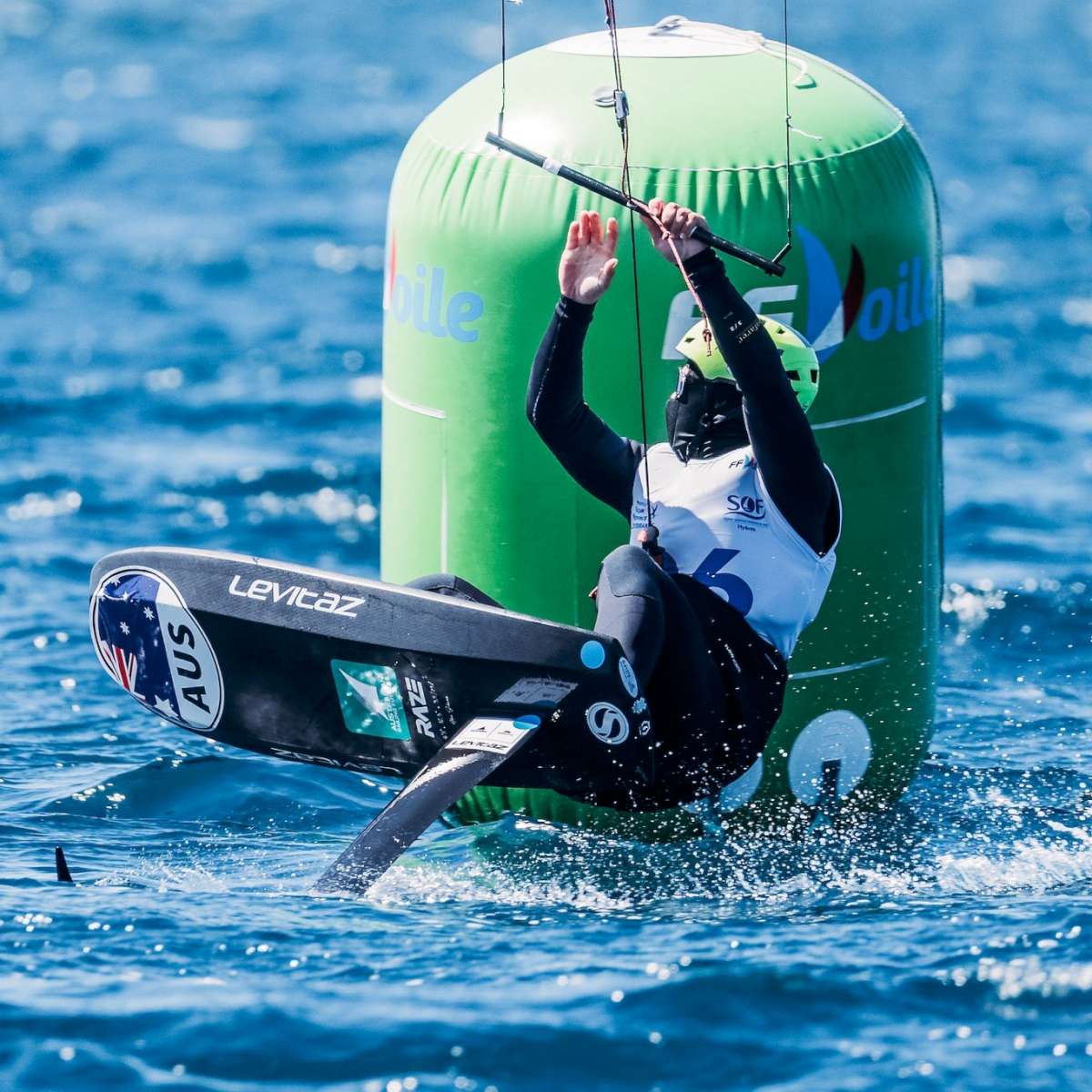Italy’s Ambrogio Beccaria on his all Italian designed and built Musa 40 Alla Grande Pirelli added the hugely prestigious Transat CIC Class 40 title to his steadily growing collection of solo and short handed ocean racing honours yesterday morning when he crossed the line of the historic race at 03:47:55 hrs (CET/Italy. 23:47:55hrs local NYC) in first place, ending an incredible head to head, a battle of nerves and skill, with France’s Ian Lipinski (Crédit Mutuel) a greatly respected friend, rival and former co-skipper. His elapsed time is 11d 16h 17m 55s
For the 32 year old Milanese solo racer victory on this iconic 3,900 nautical miles race across the North Atlantic from Lorient to New York is his third major Transatlantic success, adding to his formative 2019 MiniTransat win and last year’s Transat Jacques Vabre two handed victory with French co-skipper Nicolas Andrieu. Speaking after the line he said, “It is not often you win two Transatlantic races in a row in six months and this is the first solo race that I have won on the boat, that is very, very important to me. And this is one of the best races I have ever done. A lot of the time it is about pain and suffering, this time I was very, very aware all the time of what I was doing and everything worked very, very well.”
All Italian
In his debut year with the slippery, powerful Gianluca Guelfi and Fabio D’Angeli design he finished second on the 2022 Route du Rhum and was only denied the win by Yoann Richomme, winner on Tuesday of the IMOCA class on this famous race which was first contested in 1960 as the Observer Singlehanded Transatlantic Race. Beccaria’s Italian triumph follows the pioneering Class 40 success of Giovanni Soldini, who had an outstanding win in 2008.
But while Beccaria’s previous wins have been more the result of superior boat performance backed up by excellent strategy – witness the final third of last Autumn’s Transat Jacques Vabre when Beccaria chose the south side of the course on the approach to Martinique to win – the Italian found his match on this ‘north face’ course in Lipinski with whom he won the 2022 Normandy Channel Race on the Frenchman’s boat as well as taking third overall on the Les Sables Horta race.
Early on after struggling with initial technical problems Beccaria was down in fourth and stayed there until emerging out of the first big low pressure. As the winds eased Beccaria took a more definitive lead. He worked that out to 74 miles over Lipinski before the leaders ran into light winds. But in the strong Gulf Stream currents and gentler winds the Italian – not knowing well the unpredictable strong currents – lost all of that again to Lipinksi.
But as they emerged out of the next front Beccaria’s strategy was better, getting south earlier, and he made the key gain which he grew to be just under 40 miles ahead of Lipinksi at the finish line some 110 miles off New York this morning.
The match, a battle of nerves and skill
Theirs has been an engaging thrilling match with the lead changing at least five times. Lipinksi – sailing his last race with his remarkable 2019 David Raison designed Mach40 – has been a respected co-skipper to Beccaria on many occasions, not least winning the 2022 Channel Race together and being third on the Les Sables Horta offshore race together last year. On the original scow design, Lipinski won the 2019 Transat Jacques Vabre.
Paying a tribute to Lipinski a couple of days ago Beccaria said, “ It has been hard to find routes as I don’t have the masthead zero any more and so in the light winds I have to work to different angles. And so yes, I am sailing with my FRO in light winds and not doing so bad. And it is wonderful to be here with Ian as her is someone I really, really appreciate, to have this battle with him is special, there is no better mate to have this fight with, I can’t wait to see how it ends in hopefully less than two days. When the high pressure moves there is another front coming with more wind and more waves.”
Beccaria reported that he had a damaged bulkhead early in the race which he took time to repair which was followed on May 5th with the loss, damaged off the Masthead Code Zero. But since leading out of the last high pressure system Beccaria has extended to a more conclusive margin.
And long before the start Ambrogio had an appealing view of his fundamental desire to go to New York by sea….
“Going to New York by sea resonates, particularly recalling all the generations of Italians who have left their homes to seek a better life.”
Doubtless he will find the time to go and celebrate in style with among the huge, partisan Italian community in New York. He is due to arrive at the One15 marina during the day Friday.
AMBROGIO’S WIN IN NUMBERS
Finish time: 03:47:55hrs (UTC) 23:47:55hrs local NYC
Race time: 11 days, 16 hours, 17 minutes, 55 seconds
Distance sailed: 3280.06 nautical miles
Average speed (on the Great Circle): 10.52 knots
Actual average speed: 11.70 knots
Ambrogio Beccaria after the finish line
An incredibly close race with lots of twists and turns, how do you feel to win?
It is not often you win two Transatlantic races in a row in six months and this is the first solo race that I have won on the boat, that is very, very important to me. And this is one of the best races I have ever done. A lot of the time it is about pain and suffering, this time I was very, very aware all the time of what I was doing and everything worked very, very well.
It was hard, the hardest race you have done?
There were some very hard moments, there were, but in the end I did not find it so hard overall. The conditions were pleasant in that we were prepared for the worst and to me the Route du Rhum was harder, there was more tough upwind. At the end the conditions were good, but there was a lot, a lot of intensity, the periods without wind were very, very stressful and it was cold, very cold at times.
Where did you get the edge because you needed to make a few comebacks?
I think I am really happy about my race because I really wanted to know the moments where I could push and I did that, attack. This time I really understood and made it work. The first time was south of Ireland when I was able to catch up with the leading group, that was really key. That was a present from the boat because it was pure speed. Then it was the rounding of the low pressure when I did a wonderful navigation I was really happy. I was using a lot of energy then but I knew it was a turning point of the race. And then it was important that when I lost all of my advantage to the others I managed to stay very calm and focused (NDLR he lost 70 miles in light winds and the Gulf Stream current) and I just stayed on it and not thinking about things I cannot manage.
And the winning move, that little gain that finally grew…
The final breakaway was when I played really near the centre of a secondary low pressure system that was created in a front and so I was able to get up my spinnaker while in the front, Ian was still in it and I was able to do some south and I had a better angle to go west, I crossed three miles in front of Ian, I think the boat has an edge reaching, the boat is quite exceptional.
You had some damage you said?
I ripped the masthead code zero, a very, very important sail, at the beginning of the race and that really affected me, this was a painful moment. Then I had to do a small repair on the bulkhead, it was very small and I think it was there before the start. So it was really not a big problem. But the most annoying thing is that I broke twice in the last 200 miles the system that gets the rudder down, I don’t know if I hit something but it happened twice, first time I broached and lost the gennaker, the second time was 20 miles from the end, so these were stressful moments. And last night I had lightning very, very close to the boat. It was quite scary.
Knowing Ian Lipinski (who is second) like you do, you had a lot of respect for him as an adversary?
And Ian did such a wonderful race. I knew from the beginning he was one of the strongest in the race. He knows the boat so well, he knows well how to sail singlehanded and he has a lot, a lot of energy. And at the end it was good for Ian who is very, very fast in strong downwind, and also one of the key moments was when he broke one of his spinnakers (his A6 which he calls Pumba). He lost a lot with the loss of that spinnaker. I love to sail against him, he is attacking all the way.
What are you looking forwards to when you get in to New York?
I am looking for a harbour in New York, any harbour. But I am looking forwards to seeing people, I put a lot energy and effort into my races and I want to share with everyone, with other people. I love singlehanded racing but I love people also.
To keep up to date with Transat CIC, please visit thetransat.com
Text Credits: The Transat CIC
Photo Credits: The Transat CIC
Video Credits: The Transat CIC
Facebook @TheTransatCIC
Instagram @the_transat_cic




























